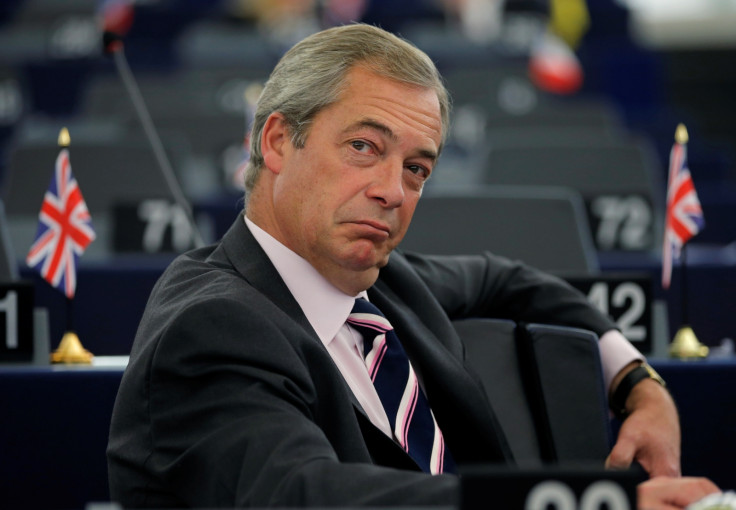Sentimentality is the last refuge of those politicians with no idea what they are doing
Intolerance and sentimentality are halting places for Brexiteers who still haven't grasped what they've done.

Sentimentality is a far greater driver of political instability in western democracies than 'post-truth' politics. Indeed, attributing every unexpected political development to a credulous disregard for 'the truth' is to fall into what might be called the Richard Dawkins trap: the self-satisfied notion that the only reason people fail to believe what you believe is because they are part of a cerebral lumpenproletariat.
Politics is, after all, about competing interests as much as it is about gaining access to the truth. People survey the economic and political landscape from vastly different vantage points, and only liberal hubris can fail to acknowledge that what is true for one is not necessarily true for another. To pluck an example out of the sky, globalisation does not mean the same thing for Sports Direct boss Mike Ashley as it does for a person living in a red-brick back-to-back who has to toil away in one of his warehouses – in a forlorn part of the country where distributions sheds, call centres and supermarkets have replaced coal mines, power stations and car factories.
Sentimentality is typically a dead end; yet it is perfectly possible to comprehend its morbid appeal. "To neither condemn, complain nor lament these things, but first understand them," as Spinoza's famous dictum puts it.
You need also to recognise the symptoms of empty nostalgia; and in Britain today the symptoms are strewn all about us. On the Tory right, whimsical sentimentality has been substituted for flesh and blood human beings. We are being governed by parochial village green conservatives for whom patriotism and democracy are little more than empty concepts marshalled in order to condemn opponents. We are living with what Michael Moorcock noted under Margaret Thatcher's governments in the 1980s: "Humanity was derided and marginalised. Sentimentality became the acceptable substitute. So few people seem to be able to tell the difference."
Yet at least Thatcherism had a certain logic to it. Thatcher's Chancellor Nigel Lawson held, after all, an "ideological belief in free markets and a wider distribution of private ownership of property," as he crustily asserted (once again) in his recent memoirs. Few people today believe in this sort of emancipatory power of the untrammelled free market. The so-called 'Osborne supremacy' – a cutthroat vision of Britain in which poverty wages exist alongside open borders and social liberalism – has been comprehensively buried under 15 million Brexit votes.
But in grasping blindly for its own raison dêtre, the new right is anchoring a declining nation to a fairy-tale lifted straight from a piece of 'Merrie England' folklore. Everything beyond the old and golden shores of England is a threat. Europeans are seeking to hold down British entrepreneurs and continentally-minded judges (for what else are homosexuality and fencing if not imports from the continent?) are a modern equivalent of the Luftwaffe, straining every sinew to defeat the will of the British people.
Nearly every right-wing columnist and pundit today is seemingly getting paid not by the word, but by how many times they disparagingly reference 'elites', 'wealthy liberals' and – more sinisterly – 'cosmopolitans' in their copy. If you take them at their word, you are apt to accept Friedrich Engels's semi-serious remark that socialism "has not only become respectable, but has actually donned evening dress and lounges lazily on drawing-room causeuses". Never have so many members of the elite, on paper at least, been so unhesitatingly in favour of their own abolition.
Yet listen a little more carefully and, as if observing a poorly-trained magician, the deception becomes clear. Theresa May leads a so-called 'workers' government' which refuses to hold an enquiry into the brutal treatment by the police of flesh and blood workers at Orgreave. The judiciary is part of the elite which newspaper proprietors are somehow magically exempt from. The government talks about democracy while chipping away at the democratic rights of workers to take their bosses to employment tribunals. Right-wing newspapers cite the sovereignty of the British parliament while labelling those who try to enact it 'enemies of the people'.
The prolier-than-thou posturing of right-wing conservatism is thus a revolt in the same sense that a waxwork model in Madame Tussauds has blood running through its veins.
Get ready for more empty nostalgia, more heresy hunting of those who fail to get in line, and more giant plastic poppies as a cavalier and resurgent right pushes us ever further down the slope of national decline.
© Copyright IBTimes 2025. All rights reserved.






















